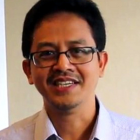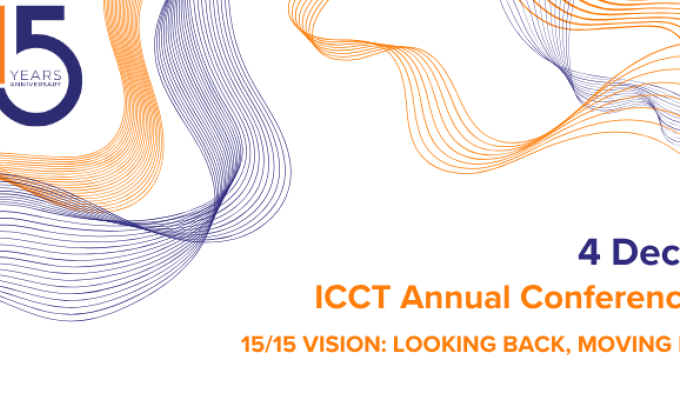This ICCT Guest Commentary is authored by Noorhaidi Hasan, Sunan Kalijaga State Islamic University of Yogyakarta, Indonesia.
With the sentencing of violent extremist cleric Abu Bakar Ba'asyir and the start of the trial against alleged Tanzim Al Qaeda in Aceh member Abu Tholut this month, it remains evident that Indonesia, the world's largest Muslim majority country, is on the front lines of the battle against terrorism. This battle predates the 2002 bombings of two crowded Bali nightclubs by Jemaah Islamiyah (JI) militants, killing 202 people, many of them foreign tourists. In fact, I would argue that Indonesia has become one of the most successful countries in tackling the threats of Islamist radicalism and terrorism, which erupted in the aftermath of the fall of the Suharto’s New Order regime in May 1998. As a result of the chaotic transition toward electoral democracy after Suharto, a number of militant Islamist groups have emerged and achieved notoriety by taking to the streets to demand the comprehensive implementation of the shari‘a and raiding cafes, discotheques, casinos, brothels and other reputed dens of iniquity. The efflorescence of these groups has provided the background for the emergence of numerous jihadist groups that have become active in various trouble spots in Indonesia, especially in Maluku and Central Sulawesi. They have perpetrated terrorism in the name of jihad in Jakarta, Bali and other regions and cities of Indonesia. The most phenomenal among the groups was JI, the organisation identified as the hub of Al Qaeda operations throughout Southeast Asia and deemed responsible for a series of bombing attacks in Indonesia over the past decade. Given the scale of Islamist radicalism and terrorism’s impact, Indonesia even became notorious as a safe haven and a hotbed for terrorism in Southeast Asia.
Combining Hard and Soft Measures
Initially, Indonesia was disoriented in tackling the threats of Islamist radicalism and terrorism. Repressive measures guided by an ‘enemy-centric’ strategy that had been applied by the government of the New Order could no longer be repeated amid the growing demand for reform and democracy after the Suharto regime had fallen. The demand for reform required the predominant military presence to be scaled back and allow the National Police (Polri) to take over the role to counter terrorism. This policy, however, proved to be unsuccessful, mainly because of the police’s incomplete database and relatively weak capacity to deal with terrorism. There was also another factor in play. Traumatised by the New Order’s repressive security measures when dealing with radical Islamist challenges, Indonesian civil society reminded President Megawati’s administration of the danger of relying on military means to combat terrorism. All of this changed dramatically after the 2002 Bali bombings, which showed how grave the threat was that radical groups posed to Indonesia.
Gradually, Indonesia has developed a model of responding to Islamist radicalism and terrorism by carefully combining ‘hard’ and ‘soft’ measures. Various security agencies scattered in the National Police, the Indonesian Intelligence Agency (BIN) and the Indonesian Military Force (TNI) were mobilised to tackle the threats under the coordination of a new institution established during Megawati’s administration, the Terrorism Eradication Coordinating Desk (TECD), located in the Office of the Coordinating Minister for Political, Legal and Security Affairs. Instead of the military, the police was designated as the leading agency in Indonesia’s counter-terrorism efforts, which was based on law enforcement, rather than security. A major step forward was made when the military counter-terrorism resources and expertise, which had been mainly housed in Gegana Regiment II of the Brigade Mobil (BRIMOB), were reorganised and reintegrated into Special Detachment 88 (Densus 88). Since its establishment in 2003, Special Detachment 88 has become the premier counter-terrorism unit in Indonesia, having arrested or killed over 600 terrorism suspects. Indonesia has also continued to enhance the capacity and capability of its counter-terrorism agencies by increasing their budgets for handling terrorism, strengthening cooperation with various foreign agencies and governments and working out various other initiatives aimed at curbing rooms available to manoeuvre for Islamist radical and terrorist groups.
Nevertheless, the ‘hard’ approach developed under the banner of law enforcement instituted primarily through the Special Detachment 88 is not without controversy. Between 2004 and 2009, the unit arrested 464 individuals and killed 40; in 2010 only, they arrested approximately 100 and killed 16. Questions are being raised by human rights organisations and within the US and Australia – the two countries that assist in the training of the elite counter-terrorism unit – as to the necessity of so many deaths and the clarity of and abidance by the rules of engagement. Notwithstanding these concerns, Indonesia today is less prone to major terrorist attacks than it was in the early 2000s in part because of this ‘hard’ approach. However, this may not be because the terrorist groups have been fully crushed, but can also be ascribed to them going underground and refocusing their strategy, while rebuilding their forces. To its credit, the police have achieved a degree of success with their de-radicalisation programme for detainees, which has led to several dozens of leading militants working to reconvert jihadists. In addition, the program has been instrumental in persuading a growing number of mid- and lower level operatives to collaborate with the police and authorities and provide valuable intelligence on their former terrorist networks, colleagues, and operations.
Important challenges remain, however. Indonesia’s campaigns against terrorism seem to have focused on ad-hoc measures which are mostly concerned with on operational – not strategic – counter-terrorism. The seemingly ad-hoc initiatives Indonesia has taken thus far are not based on a clear picture of the overall strategic measures to deal with the threat of terrorism. In this sense, a comprehensive counter-terrorism strategy, as opposed to an operational one, has concerned merely the ‘respond’ and ‘pursue’ measures. It is clear they should also address the overall environment that breeds extremist and terrorist activities as well as terrorist attacks. The government eventually realised this necessity by highlighting the need to apply the soft approach, emphasising the importance of persuasive methods. From this perspective, the enemy is not an entity that should be destroyed. The method is employed to make the individual target cooperative and even change his radical mindset. Within this context, the National Police spearheaded the government’s de-radicalisation programme.
The Role of Civil Society
At the operational level, the success of the police’s de-radicalisation programme has been considered “partial”. There is a need for Indonesia to involve all sectors of the society – especially those from moderate Islamic mass organisations – specifically in tackling the dissemination of jihadi ideology at the grass-roots level. This is all the more urgent as terrorist recruiters and radical organisations continue to feed Indonesian society with extremist religious doctrines and discriminative sentiments. A change in focus of the counter-terrorism strategy is moreover crucial in order to adapt to the evolvement of the threat of terror in Indonesia. The latest terrorist groups are no longer constituted by an organised local network with ties to transnational groups like Al Qaeda, bent on attacking Western or American targets within the country. Recent arrests and attacks show that the terrorist threat has adopted new features and JI has the capacity to survive.
Learning from some of the weaknesses of Indonesia’s counter-terrorism efforts, the government has welcomed the involvement of civil society in the campaign against radicalism and terrorism. The belief among many civil society actors is that in order to truly minimise and contain the threat of terrorism in the long run, the ‘strategy’ of the radical groups that seeks to ‘infect’ local populations with violent ideologies must be countered. A ‘population‐centric’ strategy can prevent the local population from being ‘infected’ with radical ideologies. Such a strategy can be more adequately developed from a COIN (Counter-Insurgency) than a counter-terrorism perspective. A basic key element of COIN is the ability to bring increased attention to the civilian role in conflict stabilisation and counter-terrorism.
In fact, Indonesian Muslim civil society organisations, with Nahdlatul Ulama and Muhammadiyah standing at the forefront, had already actively been involved in countering the dissemination of Islamist radical ideology and jihadi teachings through various initiatives of their own. The role of civil society is decisive as it has been working on the grassroots level to strengthen Muslims’ awareness to and social resilience against the threats of Islamist radicalism and terrorism. Endeavours that have been made focused on how to deal with what they defined as the internal and external problems pertaining to the threats of Islamist radicalism and terrorism. At the internal level, the civil society organisations are concerned with instilling religious understanding that is more tolerant, moderate, inclusive, and nationalistic among their respective members. At the external level, concern is focused more on the creation of a better image of Islam as part of the problem-solving, both at the domestic and international levels. Interestingly, in tandem with the on-going democratic consolidation after Suharto, the civil society campaigns against Islamist radicalism and terrorism have increasingly cohered with the idioms of modern democracy.
Indonesia has come a long way, but still faces a lengthy and winding road ahead. Nevertheless, the Indonesian experience in tackling the threats of Islamist radicalism and terrorism with a delicate balance of soft and hard measures is highly interesting and valuable; one that might provide food for thought for other countries looking for inspiration for their own policies and programmes.






